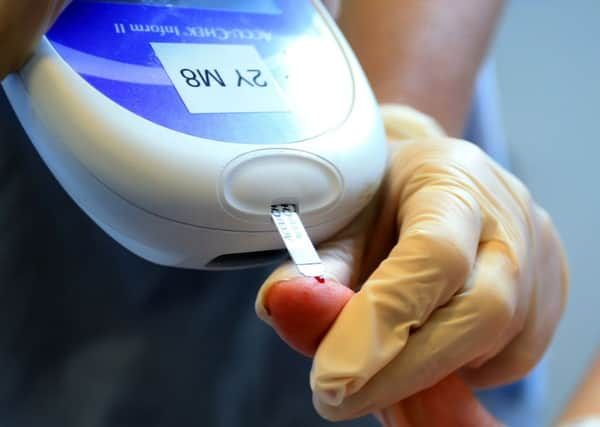Beating diabetes on World Health Day


According to figures released by Diabetes UK in January, since 2012 the number of people in Leeds suffering from diabetes sufferers has risen by 4,527, bringing the numbers up to 39,635. Leeds North CCG saw a rise of 14.32 per cent of cases over the past three years compared to the national average of six percent, making it the fifth largest rise in the country. North Kirklees saw the second highest rise in the region of 12.74 per cent, followed by Scarborough and Ryedale (11.56 per cent) and Leeds South and East (10.07 per cent).
The rise of diabetes has been chosen as the theme for the World Health Organisation’s World Health Day, an annual event since 1950, which falls on the organisation’s birthday. Each year the organisation chooses an area that is a global health concern to raise awareness.
Advertisement
Hide AdAdvertisement
Hide AdA chronic, metabolic disease, the main forms of diabetes are Type I and Type II. It occurs when the pancreas does not produce enough insulin or the body does not effectively us the insulin created. Insulin controls the blood sugar levels and raised blood sugar over time can cause serious damage to the heart, blood vessels, eyes, kidneys, and nerves. Globally diabetes is directly attributed to 1.5million deaths each year, with 9 per cent of the global adult population affected and 90 per cent of those suffering from Type II diabetes.
Type I Diabetes is when the pancreas produces little or no insulin itself and needs to be controlled by insulin injections. Type II diabetes, the most common, can be directly linked to being overweight. Diabetes UK has already called for more action to combat obesity, highlighting the need to make healthy food cheaper and more accessible and by making it easier for people to build physical activity into their daily lives.
And it is not just adults affected, there has been a steady rise in the number of children and teenagers developing the disease.
Charities, health professionals and even celebrity chefs are now battling to make healthy food, rather than convenience food, the easy option, campaigns for better food labelling and the reduction of levels of salt, fat and sugar in products, as well as restricting the marketing of junk food to children are all working toward a healthier lifestyle. In the recent budget, George Osborne pledged to bring in a soft drink sugar tax in 2018 to tackle childhood obesity. A recent study published in the Lancet suggests that a reduction of sugar in soft drinks by 40 per cent over five years could prevent 300,000 cases of diabetes in the UK.